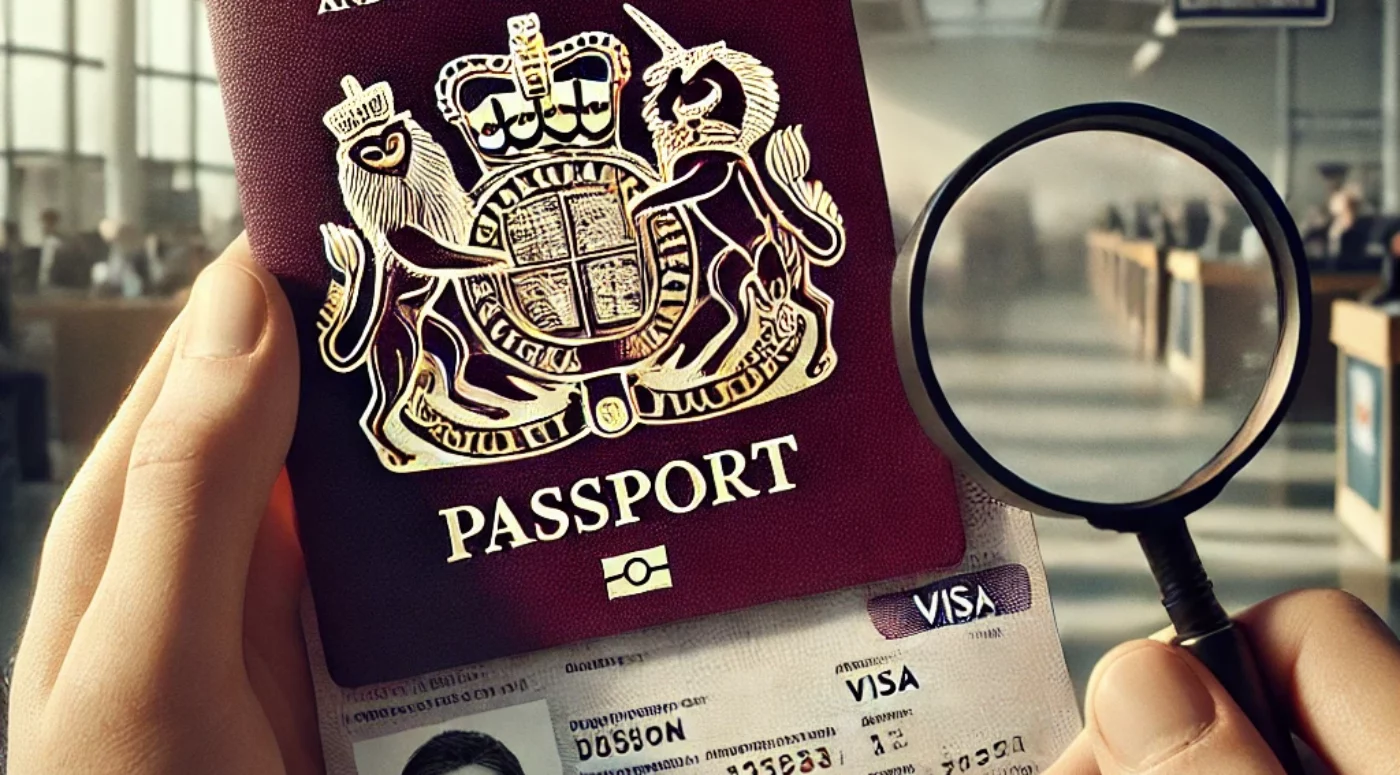

There has been a notable increase in immigration fraud cases in the UK in recent years. If you are arrested or charged with immigration fraud, you must understand your rights and the steps you should take to protect yourself. This article will guide you through the most pressing questions that might arise, such as whether you need a solicitor for an immigration fraud case and the potential defences available to you. We will also discuss the likelihood of obtaining bail and other essential considerations you need to be aware of.
Do I need a solicitor for immigration fraud?
One key reason to consider hiring a solicitor for immigration fraud charges is the complexity of the law. Immigration regulations are intricate, and understanding how they apply to your specific case can be challenging without legal expertise. A solicitor experienced in this area of law can help you understand the charges against you and the potential consequences.
Here are some key benefits of hiring a solicitor for immigration fraud charges:
- Expertise and Advice: A solicitor can provide you with expert legal advice tailored to your situation. They can explain the legal process, help you understand your rights, and inform you of the best course of action.
- Representation in Court: If your case goes to trial, having a solicitor represent you can make a significant difference. They can advocate on your behalf, challenge evidence, and work to achieve the best possible outcome for your case.
- Navigating Legal Procedures: The legal system involves numerous procedures and deadlines that can be confusing. A solicitor will ensure that all necessary documents are filed correctly and on time, reducing the risk of procedural errors that could harm.
What are possible defences for immigration fraud?
One common defence is the lack of intent to deceive. For an act to be considered immigration fraud, there generally must be an intent to mislead or deceive authorities. If you can provide evidence that any incorrect information was provided accidentally or out of misunderstanding rather than intention to commit fraud, this could be a strong defence.
Another possible defence could be duress. If you were forced or threatened into committing fraudulent acts related to immigration, this can be a viable defence. Duress involves showing that the actions were taken due to immediate threats of harm, and that a reasonable person would have acted similarly under those circumstances.
Mistaken identity can also be a defence. If someone else used your identity or if there was a mix-up in documentation, proving that you were not the person who engaged in wrongful acts can exonerate you. This defence would typically involve presenting evidence that your identity was stolen or misused.
Justification or necessity might be another line of defence, although it is more complex. This involves arguing that the illegal act was taken to prevent a more significant harm from occurring. For instance, if falsifying a document was necessary to escape persecution or immediate danger, this defence could potentially be raised. Proving necessity requires substantial evidence and a clear link between the actions taken and the harm avoided.
Will I get bail for immigration fraud?
The decision to grant bail is not automatic and depends on several factors. As we see in more detail later, these typically include:
- The nature and seriousness of the offence
- Whether there is a risk that you may fail to appear for your court hearings
- Previous criminal record, if any
- The likelihood of you committing further offences if released
- Any risk of you interfering with witnesses or the investigation
For charges like immigration fraud, the courts are particularly cautious. The main concern in these cases is often whether you are a flight risk due to ties to other countries, as well as the potential for you to continue fraudulent activities while out on bail. However, having strong community ties, a stable place of residence, and supportive family members may weigh in your favour.
Will I have to go to court if I’m arrested or charged for immigration fraud?
Each case is unique, and various factors will determine whether court proceedings are necessary. Not every case goes to court. Typically, cases of immigration fraud are handled in one of two ways:
- Administrative Procedures: Some cases might be resolved through administrative channels. For instance, the Home Office may issue a decision regarding your immigration status or impose fines without the need for criminal court proceedings. In such cases, your solicitor can help you understand your rights and the available options for challenging any administrative decisions.
- Criminal Court Proceedings: In more serious allegations of immigration fraud, especially those involving deliberate deceit or the submission of false documents to obtain immigration benefits, the case may be escalated to criminal court. If your case goes to court, you could face a trial where the prosecution will present evidence to prove the charges against you. Your defence solicitor will play a crucial role in representing your interests, challenging the evidence, and presenting your defence.
Will I go to jail if found guilty of immigration fraud?
If you are found guilty of immigration fraud in England, several factors will determine whether you will receive a custodial sentence. The potential consequences for immigration fraud can be severe, but not all cases result in imprisonment. The courts will consider:
- The Nature and Seriousness of the Fraud: Minor offences might receive less severe penalties, while more serious offences, such as facilitating large-scale illegal immigration or systematic document falsification, are likely to incur harsher penalties.
- Prior Criminal Record: A previously clean record might work in your favour, whereas prior offences, particularly related to fraud or dishonesty, could result in a harsher sentence.
- Impact of the Fraud: The court will evaluate the harm caused by the fraudulent activity, including any financial loss, risk to public safety, or significant disruption to the immigration system.
- Personal Circumstances: Mitigating factors such as health issues, family responsibilities, or evidence of remorse and attempts to rectify the situation may influence the sentencing outcome.
Possible non-prison punishments for immigration fraud can include:
- Fines: In less severe cases, you might be ordered to pay a financial penalty.
- Community Service: This non-custodial option may involve unpaid work in the community or participation in rehabilitation programmes.
- Suspended Sentence: Occasionally, a court may decide to impose a prison sentence but suspend it, which means the offender does not go to prison immediately but instead are given a set period during which they must comply with certain conditions (if they fail, they can be sent to jail).
Will I go to jail if it’s my first offence of immigration fraud?
One of the most pressing concerns for first time offenders is whether they will be sent to prison.
The outcome of an immigration fraud case largely depends on a variety of factors, including the severity of the offence, the evidence against you, and your personal circumstances. Here are some key aspects that will influence the court’s decision:
- Severity of the Fraud: Immigration fraud can range from providing false information on a visa application to more serious offences like human trafficking. The more severe the fraud, the greater the likelihood of a harsh penalty.
- Amount of Harm Caused: If your actions have caused significant harm or financial loss to others, this will be taken seriously by the court. For instance, if your fraud resulted in illegal entry or residence, it may be viewed more severely.
- Previous Record: Since this is your first offence, you might receive some leniency, but this doesn’t guarantee avoiding jail time. The court will consider your overall character and background.
- Cooperation with Authorities: Your behaviour during the investigation and legal proceedings can impact the outcome. Full cooperation and showing genuine remorse may work in your favour.
- Mitigating Circumstances: Personal circumstances such as health issues, family responsibilities, or being coerced into committing the fraud may be taken into account.
While first-time offenders may sometimes avoid jail time, especially for less severe cases, immigration fraud is taken very seriously in most jurisdictions.
Can I get Legal Aid for immigration fraud?
Legal Aid is a government-funded programme designed to provide financial assistance for legal representation to those who cannot afford to hire a solicitor on their own.
Eligibility for Legal Aid in cases of immigration fraud generally depends on several factors. First, the seriousness of the case plays a significant role. Immigration fraud cases often fall under serious criminal charges and, as such, are more likely to qualify for Legal Aid compared to less severe offences.
Another key factor is your financial situation. The Legal Aid Agency will assess your income and capital to determine if you meet the financial eligibility criteria. Typically, if you are on a low income or are in receipt of certain benefits, you are more likely to qualify for Legal Aid. However, if your income exceeds the specified thresholds, you may not be eligible, or you might have to contribute towards the costs of your legal representation.
Ask a solicitor for more information about Legal Aid eligibility.
Where to get more help
Engaging a knowledgeable and experienced criminal defence solicitor can make all the difference in securing the best possible outcome. Stuart Miller Solicitors are committed to providing expert legal advice and strong representation for your case. If you need assistance, don’t hesitate to contact us.
OUR COMMITMENTS TO YOU:
-
Responsive
A legal expert will consult you within 24 hours of making an enquiry.
-
Empathetic
We will always treat you with trust, understanding and respect.
-
Specialised
Your case will be handled by an expert who specialises in your type of offence.
-
Proactive
We will take early action to end proceedings as soon as it is practically and legally possible to do so.
-
Engaged
You will be kept updated on your case at all times. We will provide a named contact available to answer your questions.
-
Caring
We understand this is a difficult and stressful time for you and your family. Our team will support you every step of the way.
-
Tenacious
We will never give up on your case. We fight tirelessly to get you the best possible outcome.

